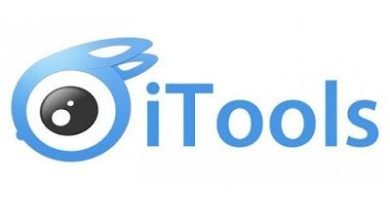What are the uses of blockchain technology in banking?

There is a huge blockchain impact on banks. Let’s clarify by comparing the Blockchain Technology with a bank.
The banks have a central database of all the customers. The central ledger contains all the necessary information of the customer including balance, transaction, account number, etc.
The bank keeps on updating the information whenever the customer makes a withdrawal or deposit.
The bank has full control over your data as the data is stored on the server of the bank. Hackers can access the server and can steal user information.
On the other hand, distributed ledgers are much more secure. The data is stored on a peer-to-peer network instead of central authority, many computers have copies of a distributed ledger.
Every node stores a copy of the data. The computers store the data from the start of the ledger until now.
For every transaction, different nodes verify it, and then all nodes update their records so that all the data stays in proper order and up to date.
Although blockchain technology could be applied to many data processing functions, payments and fraud reduction are two areas with immediate traction.
Transferring money is currently time-consuming and often requires financial intermediaries. Each of which takes a service charge and is subject to greater regulation and higher costs due to the prevalence of fraud. Blockchain reduces the number of middlemen while increasing security. Which could reduce industry-wide transaction and processing costs by billions. But this reduction in back-office red tape comes at the cost of eroding traditional roles within the financial industry.
Blockchain could also lead to greater trust between trade partners due to their access to shared, trustworthy records and the technology’s strong security features. This, along with real-time transactions, will increase the velocity of money and in turn cash flow and capital investments.
Pundits have speculated that blockchain will spell the end of money as we know it, via Bitcoin and other cryptocurrencies. Although they pose an interesting challenge to central banks’ control of monetary policy. It’s often overlooked that blockchain could also signal the end of traditional banking too. After all, the technology opens up ways for individuals and corporations to transact directly, without legacy payment networks, proprietary bank systems, or bank accounts – and therefore without banks.
If businesses see significant cost savings in offering customers different ways of paying, there will be a rise in non-banks and untraditional financial institutions – with a potential decrease in consumer banking costs.
Applying blockchain to appointment scheduling software
Blockchain is already used for appointment scheduling across sectors as varied as medical, beauty, and transit. The effect of an accurate, real-time, secure data system on appointment scheduling is obvious. Customers find it quicker and easier than ever to make in-person and online appointments, leading to more efficient use of your workforce’s time.
With the right blockchain-led appointment scheduling software, banks can more effectively channel customers to the right teams or speed up “Knowing Your Customer” compliance checks.
But efficiencies don’t stop at the appointment scheduling stage. Navigating data silos can be hugely time-consuming. Blockchain integrates them, which makes it easier for customer service teams to access and update information during the appointment itself, bringing benefits such as frictionless decisions on lending or a reduction in fraud costs.
We see blockchain’s impact on customer management as particularly interesting. As a powerful, accurate data management foundation, it records every interaction or appointment scheduled with your customer – whether physical, online, or over the phone – updated across global networks in real-time. All transactions will be accessible, from signatures on mortgage documents to complaints to in-branch appointment schedules, giving you an accurate, holistic view of every customer. This gives you access to the most important opportunity of all – turning customer insight into assets.
Why We Need Blockchain Technology
I hope you have to get the answer to the question “What is Blockchain technology!”
Next, we will discuss why we need blockchain technology?
Well, the internet we are using is safe enough and it is providing us the reliability and efficiency. Still, we need a more efficient and secure system?
Yes, we need a more efficient, reliable and secure system. When we talk about the transparency and security of data, blockchain is the key.
As I have stated at the start that we need a more scalable and robust system to meet the user and business requirements. The blockchain is gonna solve the issues that we already have with our current network.
Decentralized means no central authority will own the data. The data will be available on different nodes across the network.
The drawbacks in the centralized system are all the data control by the central authority. For example, Facebook is based on a centralized system and the company controls the data of the users and they can use it for a negative purpose.
As the central authority has a control over the data. They can manipulate the data or hackers can access the central server.
But the blockchain is totally a new network. The hacker has to steal the data from each node available on the network to completely hack the system.





